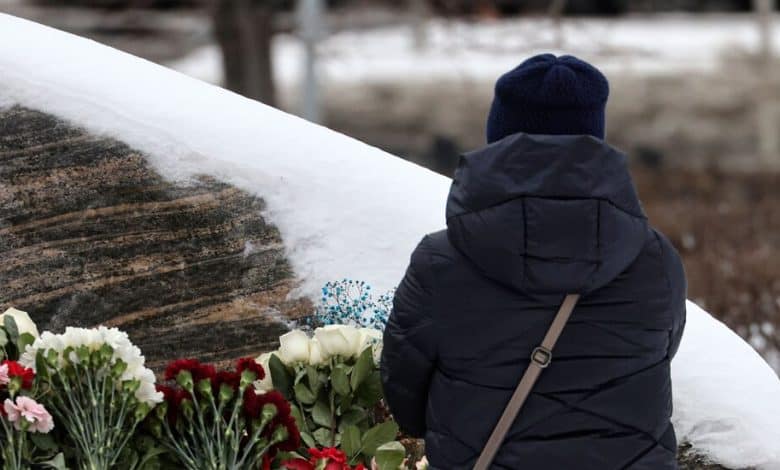Monday Briefing


Laying flowers at a memorial for Aleksei Navalny in Moscow on Saturday.Credit…Sergei Ilnitsky/EPA, via Shutterstock
What Aleksei Navalny’s death means
Aleksei Navalny, Russia’s most prominent opposition leader, died on Friday in a penal colony. He was 47.
Navalny’s body has not been released to his family, and the cause of death remains unclear.
Navalny was the Kremlin’s fiercest critic. He publicly denounced the corruption he saw at the core of President Vladimir Putin’s political party at immense personal cost: He barely survived an attempted poisoning and had been imprisoned since 2021.
His death prompted mourning in Russia — where at least 366 people have been detained for expressing their grief — and left the opposition questioning its future.
Yesterday I spoke with Anton Troianovski, The Times’s Moscow bureau chief, about the response to Navalny’s death and the future of Russia’s opposition.
What kind of reaction are you seeing in Russia? How are people mourning?
All over the country, people are laying flowers at memorials to Soviet repressions. A lot of cities in Russia have these memorials that were generally put up in the 1990s, honoring the victims of the gulag and other repression during the Soviet Union. And it seems that people are kind of automatically gravitating to those places in order to honor Navalny’s memory.
Of course, we’re talking about the minority of people who are brave enough to do that. Human rights groups have reported hundreds of arrests already of people who have gone just to lay flowers. Even doing that is a very dangerous statement in today’s Russia. And at the same time, on state television, which is the main news medium in Russia today, there is pretty much no reporting on what has happened.